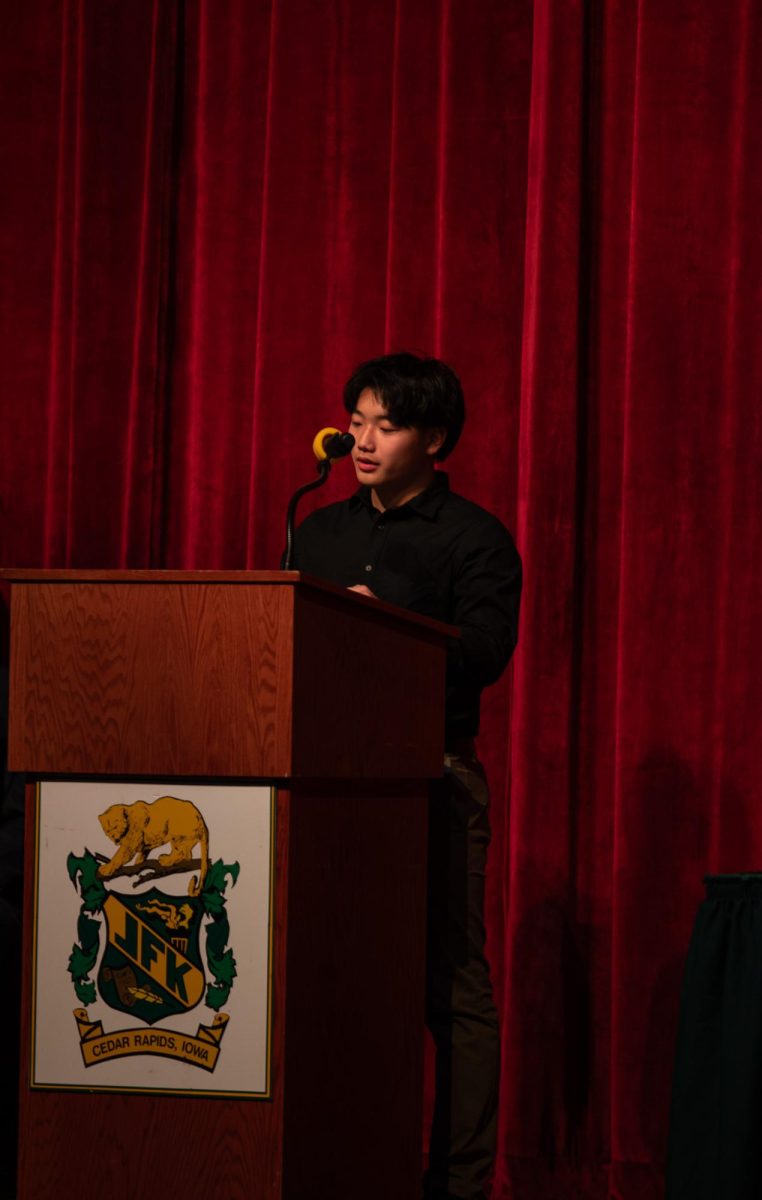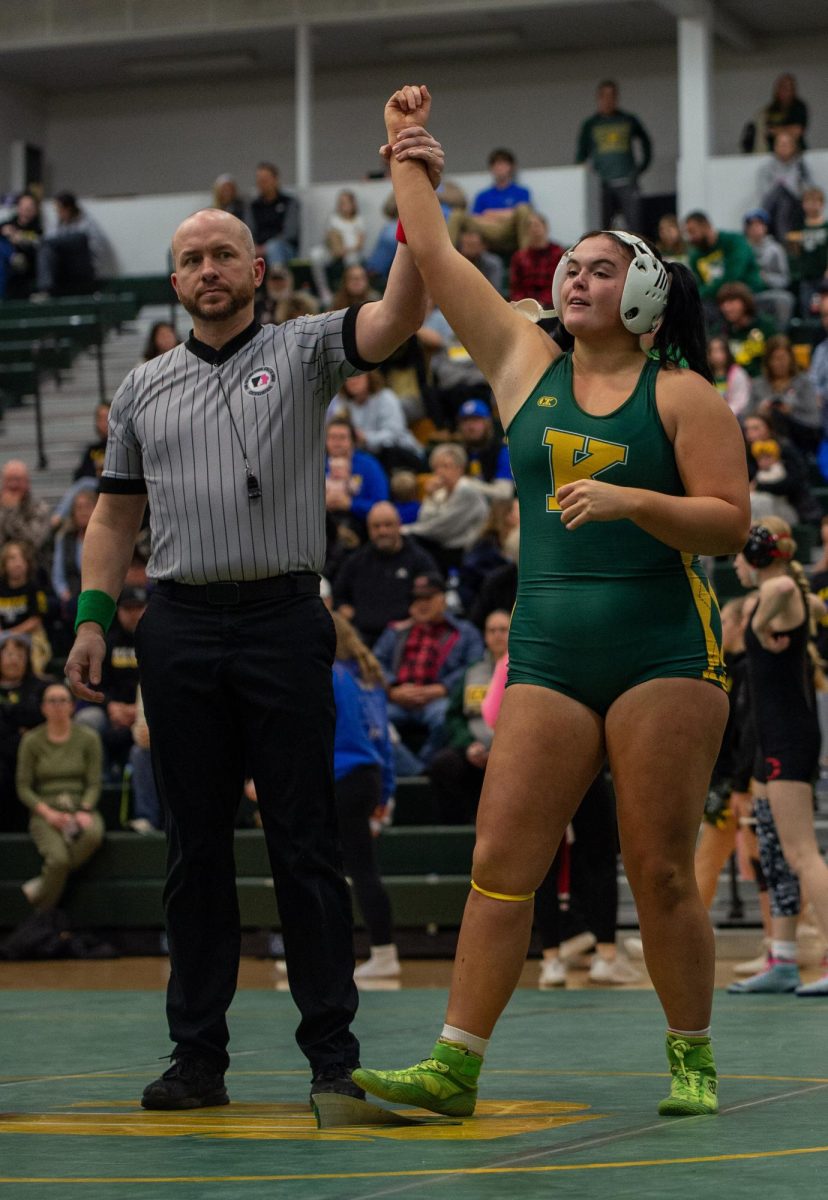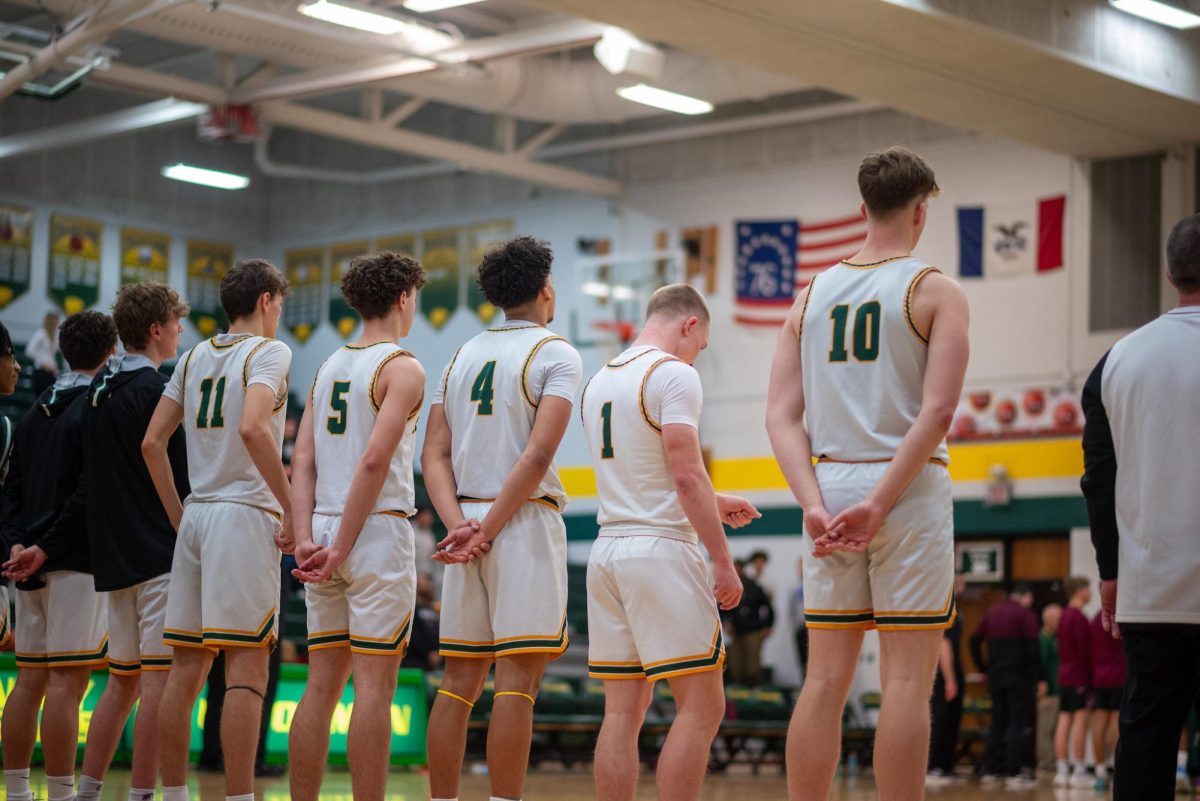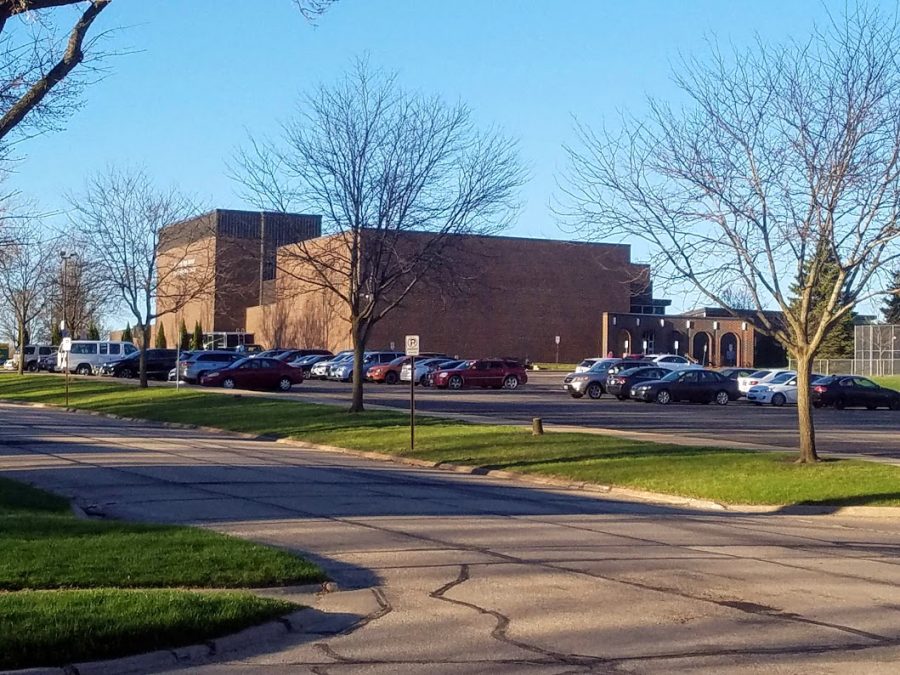The Effects of Iowa’s “Student First Act”
Cedar Rapids Kennedy High School, a public school, from the outside.
February 6, 2023
The signing of the Iowa “Students First Act” by Governor Kim Reynolds on Jan. 14 has created a new law affecting education across the state. Beginning on July 1st, many low income families will be receiving an Education Savings Account (ESA) of $7,598 to use for private schooling fees. The reasoning behind this was stated in Kim Reynolds’ annual Condition of the State speech earlier this year.
“Some families may want an education that conforms to their faith and moral convictions… every parent should have a choice of where to send their child,” said Reynolds.
Reynolds was met with strong support from many Republicans who pushed the legislation to Reynolds’ desk. However, other Republicans and many Democrats have disfavorable views on the new law. Democratic senator Molly Donahue is well known for speaking out against the bill’s supposed discriminatory nature and financial usage.
“The only ones who benefit from this bill are wealthy Iowans, who already can and are affording the private tuition-and the private institutions themselves… Students who need assistance in paying tuition already have something called STOs,” said Donahue.

The Legislative Services Agency estimates the first four years of the program will cost $878.8 million. Many feel the money could be better spent elsewhere due to public schools having teacher shortages, potential overcrowding and general funding shortages. These issues have plagued the district partly due to funding raises continuously being lower than inflation rates.
Kennedy social studies teacher, Joseph Benedict, is one of many teachers who are afraid of potential funding cuts. Despite these concerns expressed by Benedict and other education officials across the state, school funding has not increased enough to outpace inflation or fix any school problems. However, Republican Representative Cindy Goldings says that this law will actually financially help public schools.
“Currently, when a student from the Kennedy HS district chooses to go to Xavier HS (for example), Kennedy receives $0 for that student. When this bill is enacted, Kennedy will receive $1,206 for every ESA student that attends Xavier or any other private school. These funds are in addition to all other funding Kennedy gets from the State of Iowa and local taxes,” said Golding.
However, upon closer examination, the idea of these funds helping schools is difficult to back up. By encouraging students to leave public schools, the state is taking roughly $6,000 of funding away per student. This is nowhere close to the roughly $1,000 given to the school. If funding continues to get out run by inflation or potentially diverted/cut, public schools could face real trouble in the future.
Mr. Benedict says “It’s going to hurt in the long term I think… if funding cuts it could be staff, it could be supplies, it could be courses.”





























